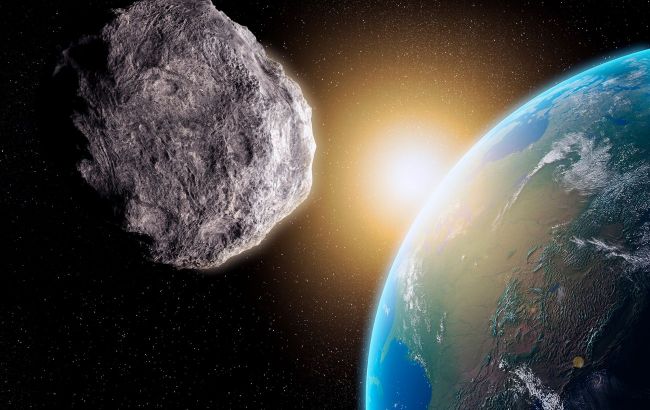Tsunamis, earthquakes, and terrible winter: Possible consequences of asteroid collision with Earth
 What will happen to the Earth if the asteroid Bennu hits it (photo: Getty Images)
What will happen to the Earth if the asteroid Bennu hits it (photo: Getty Images)
Imagine that the Earth was hit by an asteroid the size of the World Trade Center. What would happen? Scientists have modeled the possibility based on data from the near-Earth asteroid Bennu, an object that NASA considers to pose the greatest risk to our planet in terms of visibility and impact.
What will happen to the Earth if a large asteroid such as the 500-meter-long Bennu crashes into it, RBC-Ukraine reports regarding Live Science.
Bennu asteroid
The asteroid Bennu has a diameter of about 0.5 kilometers and a mass of about 74 tons. Although Bennu is much smaller than the asteroid that formed the Chixulub crater and wiped out the dinosaurs, even its impact could dramatically change the global climate and food production.
Consequences
According to Axel Timmermann, co-author of the study and director of the Institute for the Fundamental Research Center for Climate Physics, the consequences of such an asteroid impact would be as follows:
Shock waves and thermal radiation. An immediate collision will cause powerful shock waves, and intense heat radiation, which will create a huge crater and throw a huge amount of debris into the air.
Tsunamis and earthquakes. The explosive energy of the impact will cause earthquakes and tsunamis in regions near the impact site.
Long-term consequences
Supercomputer simulations have shown that the release of dust and debris will have a global impact:
- Lower temperatures. Heavy cloudy weather could lower global temperatures by about 4 degrees Celsius, causing a “collision winter.”
- Reduced precipitation. Global precipitation levels could drop by up to 15%, which would negatively impact food production and ecosystems.
- Disruption of photosynthesis. Reduced access to sunlight will reduce global plant photosynthesis by up to 30%, which will threaten food security.
- Destruction of the ozone layer. The dust clouds formed after the impact will cause strong stratospheric heating, which in turn could lead to serious ozone depletion.
- Global darkness. Reduced sunlight will cause darkness, which will slow down plant growth and photosynthesis both on land and in the oceans.
Unexpected opportunities for some organisms
Not all living organisms will be negatively affected:
Ocean algae. If the dust is rich in iron, certain types of ocean algae can flourish. These algae can provide an alternative source of food, but they can also destroy ocean ecosystems.
Probability of asteroid Bennu impact
Scientists' calculations show that the probability of asteroid Bennu colliding with the Earth is low - 1 in 2700 chances and it can happen only in 157 years - in 2182.
NASA is actively studying this object, as the Bennu asteroid is currently the most potentially dangerous.
Scientists believe that this space rock is a part of a larger asteroid rich in carbon and water. It broke off about 2 billion to 700 million years ago.
In 2016, NASA sent the OSIRIS-REx spacecraft to collect samples from the surface of Bennu.
The samples were delivered to Earth in 2023, and the first results of their analysis indicate that the material contains all five letters of the genetic code of life (DNA and RNA) and important minerals that are the basis for life.
Earlier, we wrote that NASA had spotted a brand new asteroid that could collide with the Earth.
Read also about the 5 most dangerous asteroids that could crash into the Earth.

